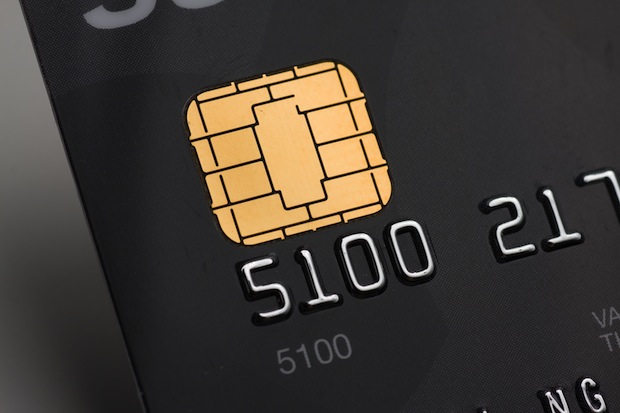EMV card chips have transformed the world of credit and debit card payments. The little chip that sits on the left side of the plastic cards people carry in their wallets has made the world of electronic payments more secure and faster.
The technology was named in the mid-1990s after the three primary electronic payments companies that developed it: Europay, Mastercard and Visa (EMV). In 1999 EMVCo was established as an independent company by the same three founding partners to manage, maintain and develop chip technology. More than 14 years later, the company is still on the forefront of card chip security and is considered the industry standard.
For Visa, it was a revolution in protection that has made card holders much safer from fraud and criminal activity, a technology we are proud to be a part of. It has completely changed the payments landscape and has brought a level of security that magnetic strips could never offer. Whether in New York City or Mombasa, Kenya, EMV chips work exactly the same and are designed to protect consumers, merchants and banks.
To understand how EMV chips changed the world of electronic payment security, it’s important to know how they work. The chip provides three key safeguards: it can store information; it processes information; and it is capable of storing secret information and performing cryptographic processing. In many ways, the card works like a mini computer always processing information.
All of this means that it is impossible to clone or replicate the chips and the circuitry that makes them work. Each chip is unique and makes each card unique. If someone tries to pull a chip off one card and place it on to another, it destroys the circuits that run through the card. Cloning a chip is considered a near impossibility.
When you make a purchase, the card must come in contact with an acceptance terminal. The terminal powers the card and activates the chip, which verifies that the card is real and that the owner of the card has sufficient funds or credit to complete the purchase. This allows the entire payment process to be made quickly and securely.
Magnetic strips, which were the industry standard, have become too easy to copy or clone and have become the focus of fraudulent activity. Once the magnetic strip is read by the terminal, the card is no longer needed because all the data is transferred to the terminal. The terminal performs all the processing. It is too easy for fraudsters to swipe the card and retain all the data with a terminal to create a new cloned card.
The chip actually determines and enforces many of the payment rules set by the issuing bank. This can include a number of additional security features such as verifying the cardholder’s identity through PIN or written signature. The bank that issues the card can define the rules and program it into the chip depending on the type of security deemed necessary.
Chips have saved banks massive costs in fraud investigations. EMV has cut down on cloned cards that were used in suspect transactions. When fraud has been detected, banks have to replace cards that have been counterfeited, and ultimately they are responsible for fraudulent payments to merchants. Fraud is a huge expense for banks and ultimately consumers who often have to bear the costs and the inconvenience.
The future is bright for new EMV technology. The industry is quickly adopting ‘contactless’—cards that are read by passing the card over a reader instead of being plugged into it—which includes the same level of protection but speeds up check out times. And new encryption is always being built into the cards themselves, so that the industry stays one step ahead of criminals.
As an industry, we are always looking out for consumers, merchants and banks. EMV quietly helps the industry build trust and to insure that financial transactions are safe. Trust is something we must always keep front and center if we are to survive as an industry. And EMV is a critical first step.
 By Jabu Basopo, Visa Country Manager for Southern and Eastern Africa
By Jabu Basopo, Visa Country Manager for Southern and Eastern Africa



































